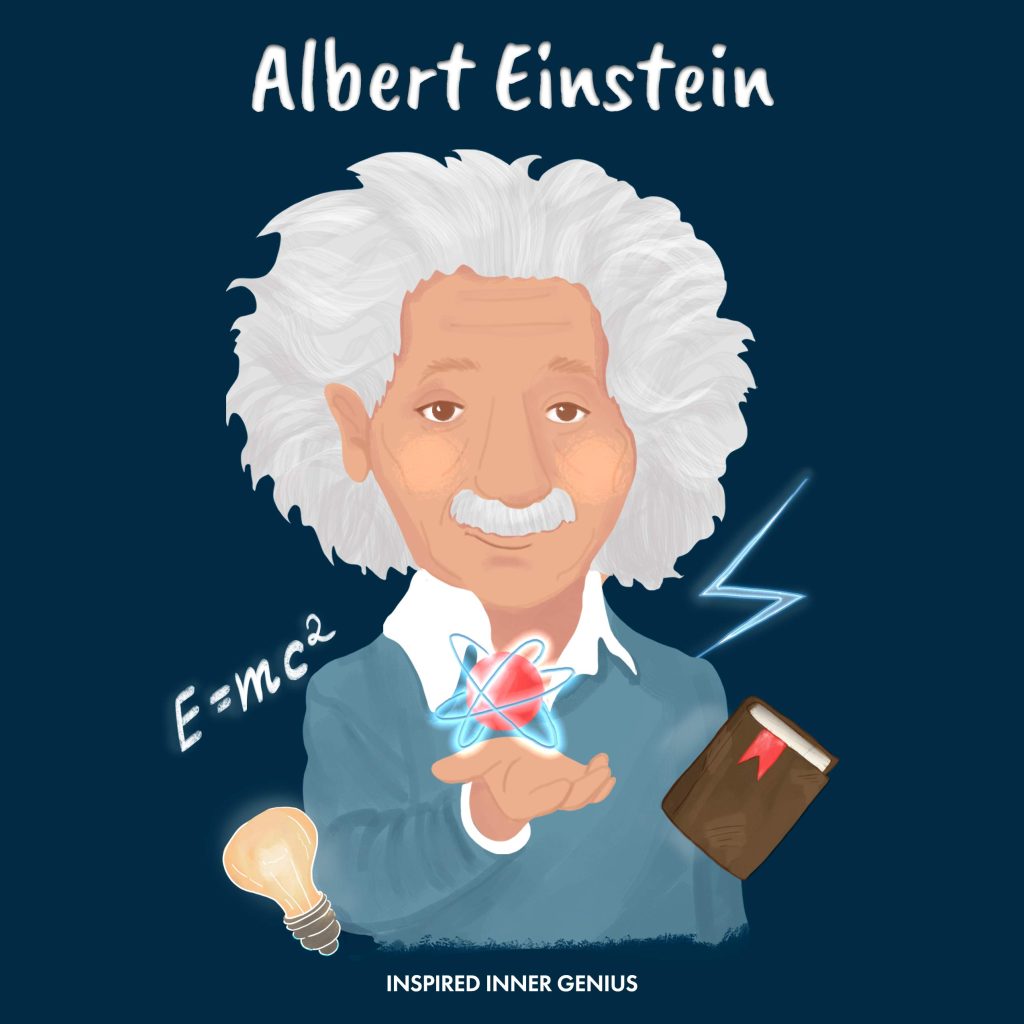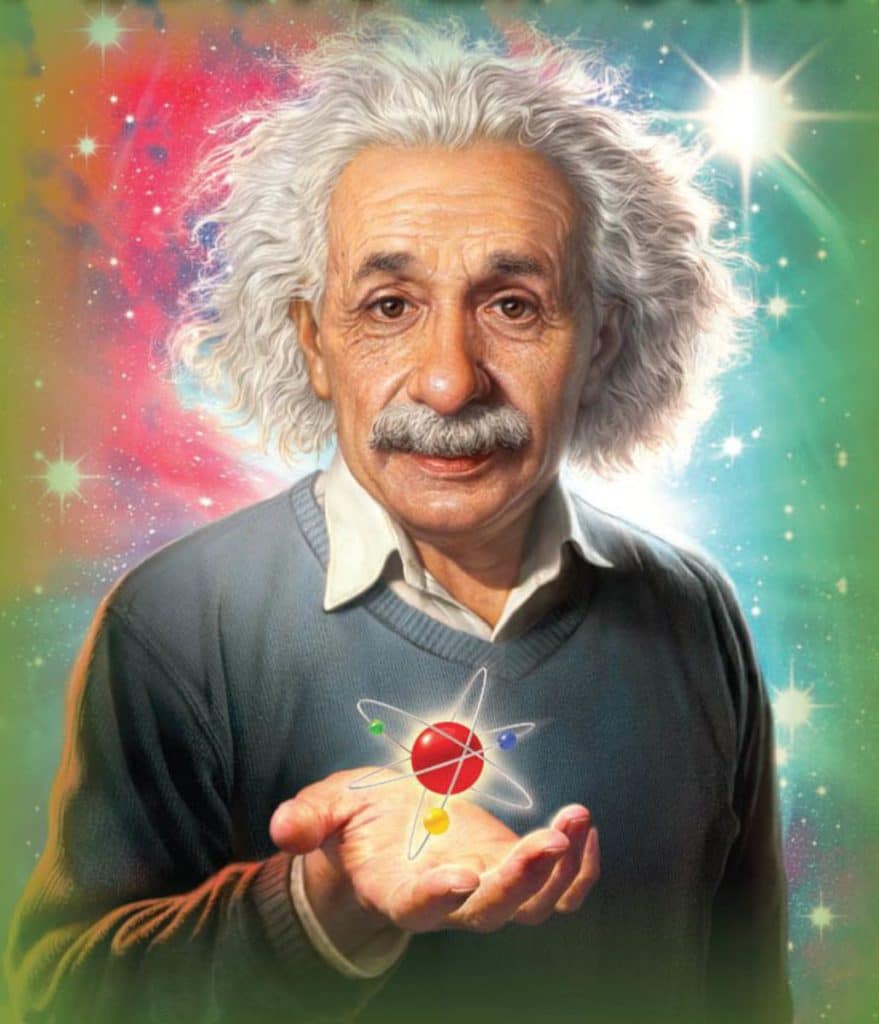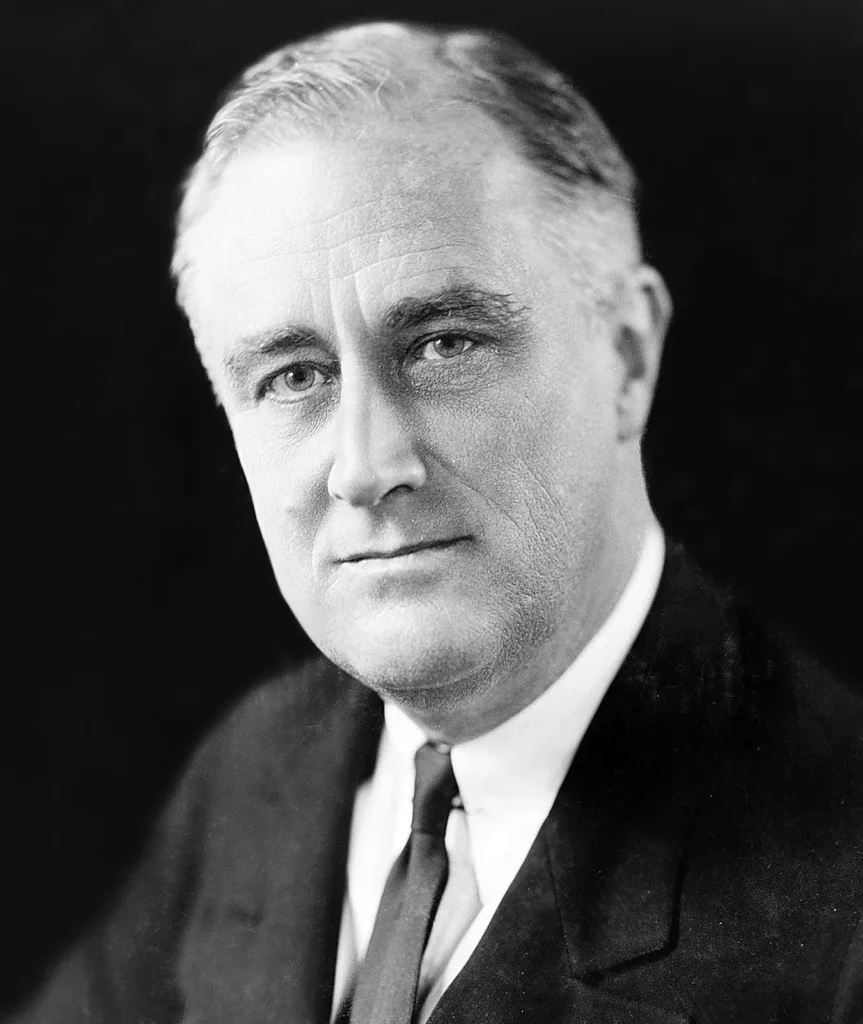We are providing you with a short and detailed summary of the class 9th Beehive Chapter 4 A Truly Beautiful Mind along with the ncert solutions. Students would get a clear idea on how to attempt questions in the examination and would be able to know the gist of the lesson. This lesson is about the great genius Albert Einstein- the story of him tries to show him as a human being, a fairly ordinary person, his streaks of rebellion and problems. Students can also think about how a great person was perceived before being recognized as great; it is not that great people are born with some special signs that are recognized instantly.
Important word meanings: A Truly Beautiful Mind
- Freak- a person who is unusual and doesn’t look or think like others.
- Amateur– doing something for pleasure and not making it as a profession.
- Regimentation– order or discipline is taken to an extreme.
- Stifled- unable to breathe, suffocated
- Liberal– willing to understand and respect others’ opinions.
- Ally- a friend or an associate
- Philistines– a person who does not like art, literature or music.
- Patent- a document that gives the rights of an invention to an inventor.
- Absolute- measured in itself, not in relation to anything else.
- Unraveling- starting to fail.
- Faltered- become weak.
- Deflected- changed direction because it hit something.
- In an uproar- very upset.
- Missive- letter, especially long and official.
- Visionary– a person who can think about the future in an original and intelligent way.
Central theme: A Truly Beautiful Mind Class 9th
A Truly Beautiful Mind Summary is about the greatest genius of the world- Albert Einstein. As we know he was a great scientist and this chapter is a short biography and highlights some of his vivid experiences, his perspective and how he dealt with his problems when he was not recognized as a genius. This story also focuses on the serious issue of the school education system, where there was no kind of evaluation mentioned to deal or help the gifted students.

Summary of A Truly Beautiful Mind Class 9th
Albert Einstein was born on 14th March 1789 in the German city of Ulm. When he was born he did not show any signs of greatness but his mother found him a freak as his head was so big. When he learned to speak he stuttered and repeated everything two times. His friends called him a boring brother so he played with his mechanical toys. He even thought of his sister Maja as a mechanical toy and asked about where her wheels were.
One day, his headmaster called his father and told him that it doesn’t matter what profession he chooses but he would not be able to make up anything.
But Einstein was good at every subject and scored good marks. He also joined a high school in Munich. He sometimes argued with his teachers and did not like the strict environment of the school so he decided to leave the school at the age of 15. His parents had moved to Milan and left him with relatives so that he could continue his studies in Switzerland.

Einstein was highly gifted in Mathematics and also had a keen interest in Physics so he decided to study to complete his graduation at a university in Zurich. He there found his love and he called her a clever creature. She was from Serbia and had come to pursue her degree in Switzerland. The couple fell in love and expressed their love through love letters which were a mixture of science.
Albert at the age of 21 got his university degree and after that, he also got a job as a technical expert in the patent office in Bern in 1920. While working there and assisting in others’ inventions was developing his own ideas too. He called his desk the bureau of theoretical physics.
One of the famous papers of 1905 was the Special Theory Of Relativity according to Einstein time and distance are not absolute. For example, two perfectly accurate clocks will not show the same time if they come together after a journey. From this followed the world’s most famous formula. It describes the relationship between mass and energy, E = mc2 (E stands for energy, m for mass, and c for the speed of light in a vacuum which is about 300,000 km/s.)
While he was being recognized by the world and media, his personal life was going well. His mother did not approve of his marriage to Mileva as she thinks it would not work as both of them are the same in intellect and she was three years older than him. The pair finally got married in 1903 but it did not work much and after having two sons they got divorced in 1919, Albert married his cousin Elsa in the same year.
Einstein turned a new leaf and this brought him world fame. In 1915, he published his General theory of relativity. He proved the accuracy of the eclipse of the sun in 1919 and hence his theory was approved worldwide. He was also awarded the Nobel Prize in 1921 for the same and received many honors and invitations from all over the world.
The Nazis came to power in Germany in 1933 and emigrated to the USA. Five years later after the discovery of nuclear fission by Nazis in Berlin, American Physicists got scared that they might build and use the atomic bomb.
Einstein wrote a letter to American President Roosevelt and warned him against the destruction caused by the single atomic bomb. The Americans discovered the bomb under a secret project. He was deeply shaken by the extent of the destruction caused by the Americans in the cities of Hiroshima and Nagasaki. Later on, he wrote a letter to the United Nations to form a world government so that work for peace could be done.

The letter made no response and in the next decade, he involved himself in politics and wanted to bring an end to the arms buildup. He also worked as a visionary and worked for peace and maintain democracy. Einstein died in 1955 at the age of 76. He was celebrated as a visionary and a world citizen.
You can visit our channel to get the explanation of the chapter A Truly Beautiful Mind class 9th.
NCERT Solutions For Class 9th Chapter A truly Beautiful Mind
Q1. Here are some headings for paragraphs in the text. Write the number(s) of the paragraph(s) for each title against the heading. The first one is done for you.
Answers:
Q2. Who had these opinions about Einstein?
- He was boring.
- He was stupid and would never succeed in life.
- He was a freak.
Answer:
- His playmates.
- A headmaster.
- His mother.
Q3. Explain what the reasons for the following are:
- Einstein leaving the school in Munich for good.
- Einstein wanting to study in Switzerland rather than in Munich.
- Einstein seeing in Mileva an ally.
- What do these tell you about Einstein?
Answers:
- He left the school as he did not like the environment of the school and hated the school’s regimentation and was often involved in clashes with the teachers.
- Albert’s parents moved to Munich and left him with his relatives so that he could continue his studies. After a long discussion, Albert got his wish to continue his studies in Switzerland.
- Einstein saw in Mileva Marie an ally against the “Philistines”—those people in his family and at the university with whom he was constantly at odds. He found that she was a “clever creature”.
- These tell that he was a gifted person and possessed the capabilities to achieve his targets. He had his own intellect and lived his life with liberty.
Q4. What did Einstein call his desk drawer at the patent office? Why?
Albert called his desk drawer at the patent office a “bureau of theoretical physics”. He was, while assisting with other’s inventions, developing his own ideas in secret.
Q5. Why did Einstein write a letter to Franklin Roosevelt?
Einstein emigrated to the United States. It was the fact that the Nazis had the ability to develop the atomic bomb. It could destroy the whole world. So he warned Franklin D. Roosevelt in his letter.
Q6. How did Einstein react to the bombing of Hiroshima and Nagasaki?
America dropped atomic bombs in the cities of Hiroshima and Nagasaki and Albert was deeply shaken by the destruction caused so he wrote a public missive to the United Nations to make a world government and promote peace.
Q7. Why does the world remember Einstein as a ‘world citizen’?
The world remembers Einstein as a ‘world citizen’ because he believed in universal peace. He was worried about the destruction of the atomic bomb and being a concerned person he also worked for promoting peace and democracy worldwide.
Q8. Here are some facts from Einstein’s life. Arrange them in chronological order.
Einstein published his special theory of relativity.
He is awarded the Nobel Prize in Physics.
[ ] Einstein writes a letter to U.S. President, Franklin D. Roosevelt, and warns against Germany’s building of an atomic bomb.
[ ] Einstein attends a high school in Munich.
[ ] Einstein’s family moves to Milan.
[ ] Einstein was born in the German city of Ulm.
[ ] Einstein joins a University in Zurich, where he meets Mileva.
[ ] Einstein dies.
[ ] He provides a new interpretation of gravity.
[ ] Tired of the school’s regimentation, Einstein withdraws from school.
[ ] He works in a patent office as a technical expert.
[ ] When Hitler comes to power, Einstein leaves Germany for the United States.
Answers:
[1] Einstein was born in the German city of Ulm.
[2] Einstein attends a high school in Munich.
[3] Einstein’s family moves to Milan.
[4] Tired of the school’s regimentation, Einstein withdraws from school.
[5] Einstein joins a University in Zurich where he meets Mileva.
[6] He works in a patent office as a technical expert.
[7] Einstein published his special theory of relativity.
[8] He provides a new interpretation of gravitation.
[9] He is awarded the Nobel Prize in Physics.
[10] When Hitler comes to power, Einstein leaves Germany for the United States.
[11] Einstein writes a letter to U.S. President Franklin D. Roosevelt and warns against Germany’s building of an atomic bomb.
[12] Einstein dies.
Q9. Here are some sentences from the story.
Choose the word from the brackets which can be substituted for the italicized words in the sentences.
- A few years later, the marriage faltered, (failed, broke, became weak)
- Einstein was constantly at odds with people at the university, (on bad terms, in disagreement, unhappy)
- The newspapers proclaimed his work as “a scientific revolution”, (declared, praised, showed)
- Einstein got ever more involved in politics, agitating for an end to the arms build up. (campaigning, fighting, supporting)
- At the age of 15, Einstein felt so stifled that he left the school for good. (permanently, for his benefit, for a short time)
- Five years later, the discovery of nuclear fission in Berlin had American physicists in an uproar, (in a state of commotion, full of criticism, in a desperate state)
- Science wasn’t the only thing that appealed to the dashing young man with the walrus moustache, (interested, challenged, worried)
Answers:
- failed
- in disagreement
- declared
- campaigning
- permanently
- in a state of commotion
- interested.
Q10. Study the following sentences:
- Einstein became a gifted amateur violinist, maintaining this skill throughout his life.
- Letters survive in which they put their affection into words, mixing science with tenderness.
The parts in italics in the above sentences begin with ing verbs, and are called participial phrases. Participial phrases say something more about the person or thing talked about or the idea expressed by the sentence as a whole. For example:
—Einstein became a gifted amateur violinist. He maintained this skill throughout his life.
Complete the sentences below by filling in the blanks with suitable participial clauses. The information that has to be used in the phrases is provided as a sentence in brackets.
- ……………. the firefighters finally put out the fire. (They worked round the clock.)
- She watched the sunset above the mountain, ……………. (She noticed the colors blending softly into one another.)
- The excited horse pawed the ground rapidly, ……………. (While it neighed continually.)
- …………….,I found myself in Bangalore, instead of Benaras. (I had taken the wrong train.)
- ……………., I was desperate to get to the bathroom. (I had not bathed for two days)
- The stone steps, ……………. needed to be replaced. (They were worn down).
- The actor received hundreds of letters from his fans, ……………. (They asked him to send them his photograph.)
Answers:
- Working round the clock the firefighters finally put out the fire.
- Noticing the colors blending softly into one another she watched the sunset above the mountain.
- Neighing continually the excited horse pawed the ground rapidly.
- Having taken the wrong train I found myself in Bangalore instead of Benaras.
- Having not bathed for two days I was desperate to get to the bathroom.
- The stone steps being worn down needed to be replaced.
- The actor received hundreds of letters from his fans asking him to send them his photograph.
Conclusion
We have provided you with a short and detailed summary of class 9th Beehive Chapter A Truly Beautiful Mind along with the ncert solutions to help the students to get the gist of the lesson and clear their view on how to attempt questions in the examinations

